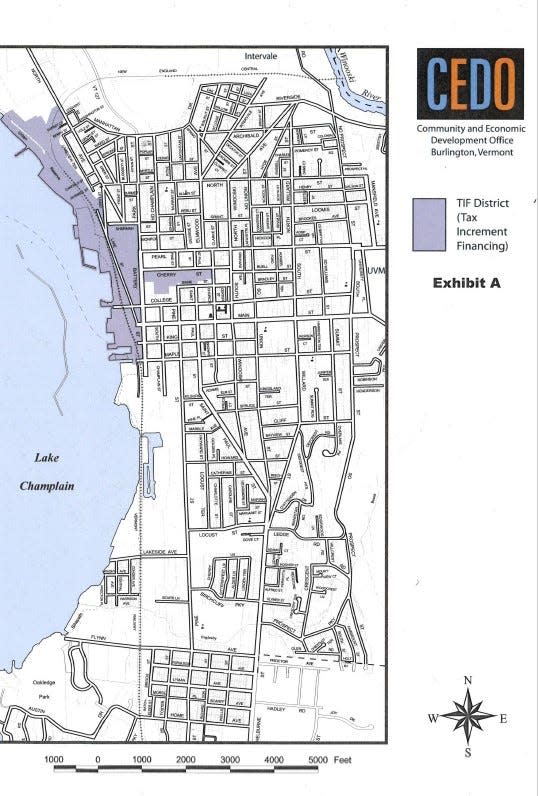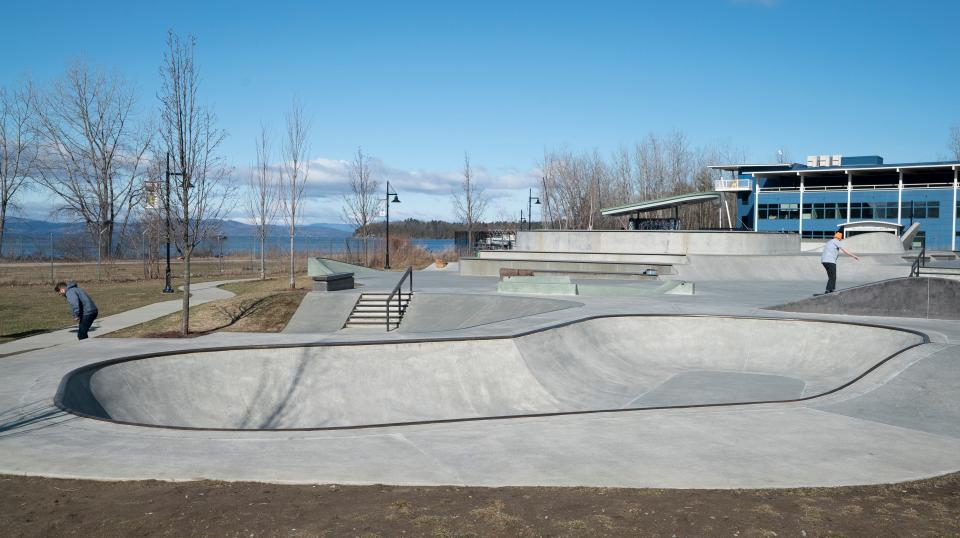Burlington owes over $1M as audit shows errors in handling of waterfront project funding
The Vermont State Auditor's Office revealed Monday that there have been years of sloppy record keeping and mismanagement of the tax mechanism used to fund Burlington development projects including Waterfront Park and the bike path.
The audit, which was done on Burlington's Lakefront Tax Increment Financing District, reported Burlington underpaid its share to the state education fund (an assertion the city is disputing), funded an ineligible project with TIF funds, and used $1 million more in TIF funds than Burlington voters had approved. The mismanagement, according to the report, stemmed from the compounding factors of bad recordkeeping and communication, project management turnover, and not following strategies put forth by Burlington's own auditors in time to fix errors.

“Advocates for the TIF program frequently suggest it is a straightforward and effective tool for municipalities to fund public projects. This audit paints a much different picture," State Auditor Doug Hoffer said in a press release Monday. "Despite the best efforts of City staff, millions in errors were made, and the City has had to hire two different consulting firms to help clean things up."
Main findings and city response
The main findings of the report showed that Burlington owes nearly $200,000 to the state education fund and $1.2 million to the TIF fund after using more TIF money than what Burlingtonians voted to allow and spending nearly $200,000 in TIF bonds on a bike trail project that they did not prove was in the TIF district.
But the mistakes will not impact taxpayers or city operations, said Mayor Miro Weinberger in a press release responding to the State Auditor's report. Weinberger acknowledged the financial issues the city faced early in the audit period when he took office in 2012 and how they affected the management of TIF funds.
Though it was too little too late, the city has been addressing project accounting system problems since they were found in a city audit in 2018, the press release said.

The city will transfer the nearly $1.2 million owed to the Waterfront TIF District Fund from the city's general fund and either pay the nearly $200,000 for the bike path project, submit proof that it was within the TIF district or let it be debt. The city will also work to resolve the underpayment of education funds, which they are disputing with the state.
"Though the Auditor’s report characterizes certain increment calculations as City 'errors,' many of these calculation differences arose due to programming problems within the State’s property tax data system, administered by the private contractor New England Municipal Resource Center, and the balance stems from an unresolved dispute over how a former garage should have been taxed," the city's press release stated.
The city's budget is flexible enough to handle unexpected expenses like this because of its unassigned fund balance, which always must contain 5-15% of the city's annual operational expenses. Even with the withdrawal of money to resolve audit findings, the city's fund remains above 10% of its expenses, according to the city's official response letter to the state auditor.

What is tax increment financing?
Tax increment financing is a way for municipalities to make large infrastructure improvements through taking on debt that is eventually repaid by capturing the natural property value increases in the area where infrastructure was improved. Normally, on land that isn't in a TIF district, the property value growth is taxed by the municipality for property taxes and the state for the state education fund. This additional revenue is called the "tax increment." In TIF districts, the municipality is allowed to take all of the municipal property tax increment and 75% of the state education tax increment and put it toward paying back debt incurred by development in the TIF district. Vermont municipalities are now required to allocate 25% of the education tax increment generated in TIF districts to the State Education Fund.
Burlington has two TIF districts, one on the waterfront and one downtown. The waterfront TIF district was established in 1996 to redevelop Lake Street and was expanded in 1997 to include a few blocks of Cherry Street to support development. So far, TIF financing along the waterfront has supported work on Waterfront Park, the bike path, Lake Street, the Moran Frame, the skate park, the new Community Sailing Center, the ECHO Sustainability Park, and the Burlington Harbor Marina. The city also expects to use it to fund $15 million of work on the blocks surrounding CityPlace in the coming years.

Hoffer argued in his statements that TIF financing was expensive compared to taking advantage of the current bounty of state and federal funds for infrastructure.
"It isn’t a cheap way to pay for infrastructure," Hoffer said. "We estimate Burlington will pay more than $11 million in interest for $32.6 million borrowed to pay for improvements."
The state audit of Burlington's Downtown TIF District will begin in eight to 12 months.
Contact Urban Change Reporter Lilly St. Angelo at lstangelo@gannett.com. Follow her on Twitter: @lilly_st_ang.
This article originally appeared on Burlington Free Press: Burlington TIF audit: Mismanagement of funds leads to over $1 million owed

